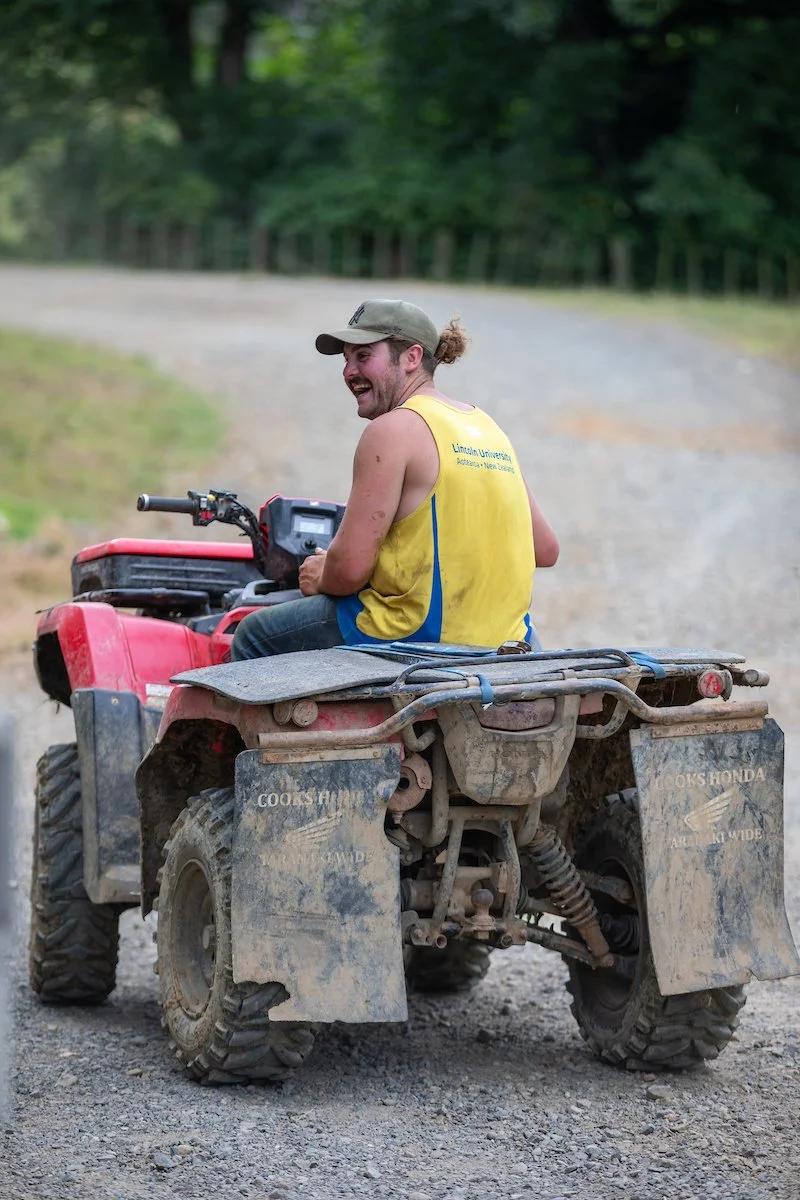Meet Your Hosts
Bridget and Hamish
This farm has been home to Bridget and Hamish for over 20 years, where they have lived, worked, and raised their three boys. Along with Bridget’s family and the Nukuhakari Ahuwhenua Trust they proudly own and care for the land. We can’t wait to share this incredible place with you and our deep passion for farm life.
About Nukuhakari Station
Family-owned, fully operational sheep and cattle station
Nestled on the west coast of New Zealand’s North Island, Nukuhakari Station is a family-owned, fully operational sheep and cattle farm, spanning over 10,000 acres of breathtaking terrain.
5000 acres of workable land and the remaining 5000 acres of mature native bush. For you farmers out there Nukuhakari Station winters 24,000 su.
What were the origins of the land?
Nukuhakari means 'roaming feast', a testament to the lands abundant natural resources. And the land bears evidence of a deep history of occupation. This remote coastal gem in the King Country boasts three black sand beaches, all unique, and remarkably was the last farm in NZ to have its wool and supplies transported by boat until road access was established in 1933.
Today, Nukuhakari Station is home to five families that love the land, not to mention…
11,000 happy sheep
2800 very happy cattle
35 working dogs and
4 fat horses!
Our history documented: Farming for a King
Have you heard of Nukuhakari Station before? In 2008, Adrienne Tatham wrote and published a centennial celebration of the Station, copies of which we believe are available at Mokau Museum. As an author of several historic books, she also wrote Footprints of a King, a biography of her Grandfather Newton King, who once owned the station.
Newton King allegedly bought the station 100 years prior with ‘scrip’ - pieces of paper given to soldiers that could be used to buy land or be exchanged for cash - which were winnings from a card game.
Ten years in the making, Adrienne Tatham details the history of the Nukuhakare Sheep Station as it is referred to, which is the Taranaki spelling and was later reverted back to Nukuhakari, though locals now fondly refer to it as ‘Nuku’. She also documents the ownership, with pre-European history and follows the land through to the present day.
It’s an incredibly interesting read and we are proud to continue the work, preservation and guardianship of this land.












